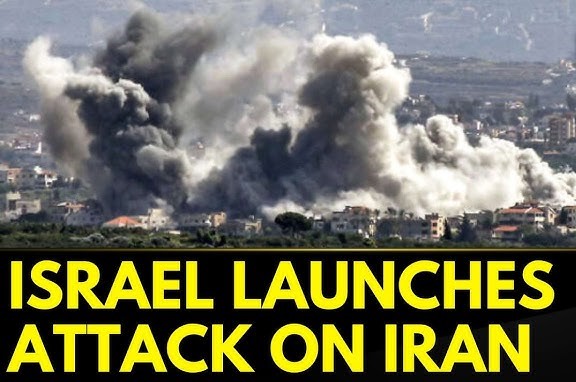🇮🇱 Israel’s Operation Rising Lion Explained: Why Iran Was Targeted, Who Was Killed, and What’s Next (June 2025)

Category: War News
Date: 13 Jun, 2025
On June 13, 2025, the Middle East witnessed a dramatic military escalation when Israel launched Operation Rising Lion, a series of coordinated airstrikes deep inside Iranian territory. The strikes targeted Iran’s nuclear facilities, missile sites, and top military leadership in what Israeli officials have described as a "preemptive operation" aimed at neutralizing a growing nuclear threat.
The offensive represents one of the most direct and far-reaching actions Israel has taken against Iran in decades, marking a potential turning point in the long-running shadow war between the two nations.
🔍 Why Did Israel Launch Operation Rising Lion?
According to statements from the Israeli Ministry of Defense, Operation Rising Lion was designed to prevent Iran from achieving nuclear weapons capability. Intelligence reports, Israeli officials claim, suggested that Iran was only weeks away from enriching uranium to weapons-grade levels and possibly preparing for a nuclear weapons test.
Israeli Prime Minister and military officials stated that diplomatic channels had failed, and that Iran had accelerated its nuclear and ballistic missile programs despite ongoing negotiations with Western powers.
“We will not wait for our enemies to gain the upper hand,” an Israeli spokesperson said. “This operation is a message: Israel will not allow Iran to become a nuclear state.”
🎯 Key Targets: Nuclear Facilities and Military Command
The airstrikes were concentrated on strategic locations across Iran, particularly in and around the Natanz uranium enrichment site, one of the most guarded nuclear facilities in the country. Satellite imagery also confirmed damage to facilities in Fordow, Isfahan, and the outskirts of Tehran.
☠️ Top Iranian Military Officials Killed
The most shocking outcome of the strikes was the death of several high-ranking Iranian commanders:
- Major General Hossein Salami – Commander of the Islamic Revolutionary Guard Corps (IRGC)
- General Mohammad Bagheri – Chief of Staff of the Iranian Armed Forces
- At least five senior IRGC generals and multiple nuclear scientists were also killed or injured
These deaths represent a significant loss to Iran’s military and scientific leadership. The IRGC has confirmed the deaths and declared a period of national mourning.
🛡️ How Did Iran Respond?
In retaliation, Iran launched over 100 drones and several cruise missiles targeting Israeli airbases, power infrastructure, and military positions. Israel's Iron Dome, David’s Sling, and Arrow defense systems were activated and successfully intercepted the vast majority of incoming threats, according to Israeli Defense Forces (IDF) statements.
Iran's Supreme Leader Ayatollah Ali Khamenei issued a warning, saying:
“There will be no limits to our response. This was an act of war, and we will act accordingly.”
Tensions are now at their highest level in years, with fears growing that this could trigger a wider regional war involving Iran-backed militias in Lebanon, Syria, Iraq, and Yemen.
🌍 Global Reactions and Diplomatic Fallout
The international community has reacted with a mix of alarm and condemnation. The United Nations Security Council held an emergency meeting, with Russia and China blaming Israel for violating Iran’s sovereignty, while the U.S. and EU urged de-escalation and diplomatic restraint.
Meanwhile, the U.S.–Iran nuclear negotiations, which had recently resumed in Oman, have now been suspended indefinitely. The White House stated that the U.S. was not involved in the operation and had no prior knowledge of the attack.
Oil markets reacted immediately. Brent crude surged over $100 per barrel amid fears of instability in the Persian Gulf.
🧩 Background: The Iran-Israel Shadow War
This is not the first time Israel has targeted Iran’s nuclear program. Previous operations include:
- Operation Outside the Box (2007): Israel bombed a Syrian nuclear reactor, widely believed to be supported by Iran.
- April 2024: Israel responded to an Iranian missile strike with a limited bombing campaign.
- October 2024: Israeli drones targeted underground Iranian missile depots in what was then the largest cross-border operation until now.
Operation Rising Lion, however, marks a significant escalation, both in scale and in political consequence.
🔗 Trusted External Sources for More Information:
- AP News: What We Know About Israel’s Attack on Iran
- Financial Times: Israel Launches Air Strikes on Iran’s Nuclear Sites
- The Australian: Iran’s Top Military and Nuclear Officials Killed
📈 What Happens Next?
Military analysts believe Iran is likely to use proxy militias such as Hezbollah in Lebanon, Houthis in Yemen, or Shia militias in Iraq to retaliate without triggering a direct regional war. Israel has placed its armed forces on high alert, calling up reserve units and reinforcing air defenses nationwide.
There is also concern that Iran may target U.S. bases in Iraq or Syria, escalating the conflict beyond its original scope.
Meanwhile, global powers are scrambling to prevent a regional war that could pull in Turkey, Saudi Arabia, the UAE, and other nations.



